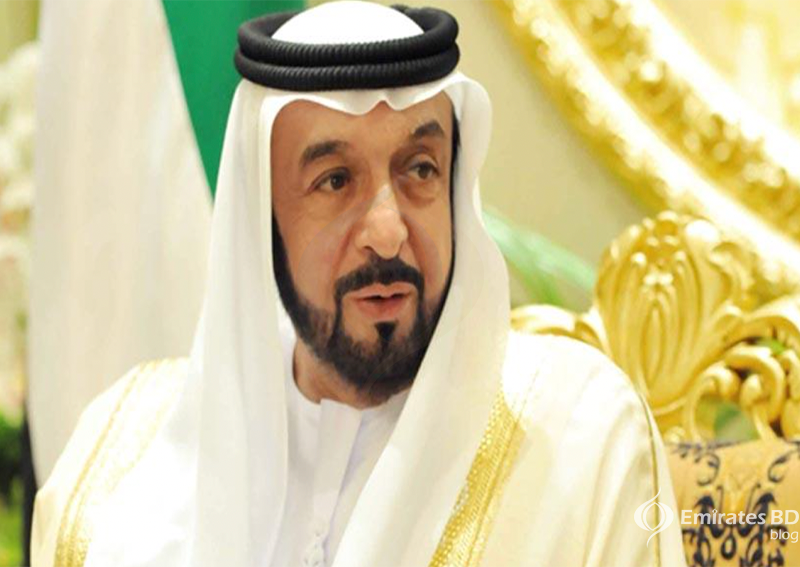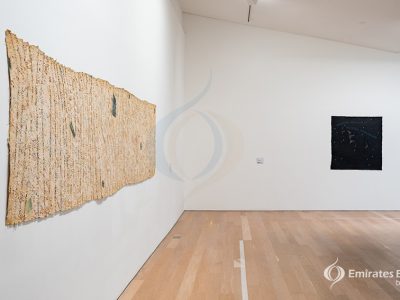The UAE Ministry of Presidential Affairs mourned “the people of the UAE, the Arab and Islamic nations, and the whole world, the leader of the nation and the patron of its march, His Highness Sheikh Khalifa bin Zayed Al Nahyan, the President of the State, who moved to the side of his Lord, satisfied and satisfactory today, Friday, May 13th.”
And the Ministry of Presidential Affairs announced, “the official mourning and the flags at half-mast for the late His Highness Sheikh Khalifa bin Zayed Al Nahyan, may God have mercy on him, for a period of 40 days, starting today, and the suspension of work in ministries, departments, federal and local institutions, and the private sector for 3 days, starting today, Friday.”
outstanding career
Sheikh Khalifa bin Zayed Al Nahyan was born in 1948 in Al Muwaiji Castle in the city of Al Ain. He is the eldest son of the late Sheikh Zayed bin Sultan Al Nahyan. His mother is Sheikha Hessa bint Mohammed bin Khalifa bin Zayed Al Nahyan. Sheikh Khalifa belongs to the Bani Yas tribe, which is considered the mother tribe for most of the Arab tribes that settled in what is known today as the United Arab Emirates, which was historically known as the “Bani Yas Pact”.
Sheikh Zayed was keen to accompany his eldest son in most of his activities, and his daily visits, in the areas of Al Ain and Al Buraimi. The Al Ain and Al Buraimi oases were of economic and strategic importance to the Emirate of Abu Dhabi as the largest agricultural producer, and as a major strategic center for the region’s security.
Sheikh Khalifa remained loyal to his father, Sheikh Zayed bin Sultan Al Nahyan, in his difficult mission to improve the lives of the tribes in the region and establish the authority of the state, which had a great impact on teaching him the basic values of responsibility, trust and justice.
In the footsteps of Zayed
Sheikh Khalifa followed in his father’s footsteps, and continued to implement major development projects in the Eastern Province, especially those aimed at improving agriculture. His remarkable success in Al Ain was the beginning of a long career in the service of the people, and the beginning of assuming his leadership role with ease, and skill recorded by his major achievements.
During the following years, Sheikh Khalifa held a number of key positions, and became the chief executive officer of the government of his father, the late Sheikh Zayed bin Sultan, and assumed the tasks of supervising the implementation of all major projects.
On February 1, 1969, Sheikh Khalifa was nominated as Crown Prince of the Emirate of Abu Dhabi. The next day, he assumed the duties of the Defense Department in the emirate.
Sheikh Khalifa established the Department of Defense in Abu Dhabi, which later became the nucleus of the UAE Armed Forces.
On July 1, 1971, as part of the restructuring of the Abu Dhabi government, His Highness was appointed as the Ruler of Abu Dhabi and as the local Minister of Defense and Finance in the emirate.
On December 23, 1973, Sheikh Khalifa assumed the position of Deputy Prime Minister in the second Cabinet.
Shortly thereafter, on January 20, 1974, he assumed the duties of the presidency of the Executive Council of the Emirate of Abu Dhabi, which replaced the local government in the emirate.
Sheikh Khalifa oversaw the Executive Council in achieving comprehensive development programs in the Emirate of Abu Dhabi, including housing construction, the water supply system and roads, and public infrastructure that led to the modernization of Abu Dhabi city.
Sheikh Khalifa bin Zayed Al Nahyan was elected President of the State on November 3, 2004, following the death of his father, the late Sheikh Zayed bin Sultan Al Nahyan, on November 2, 2004.
Strategic goals
After his election as President of the UAE, Sheikh Khalifa launched his first strategic plan for the UAE government to achieve balanced and sustainable development and ensure prosperity for citizens.
One of his main goals as President of the United Arab Emirates was to follow the path of his father, who believed in the pioneering role of the UAE as a beacon guiding its people towards a prosperous future in which security and stability prevail.
Sheikh Khalifa has overseen the development of the oil and gas sectors, and manufacturing industries that have contributed with great success to the economic diversification of the country.
He also made extensive tours throughout the United Arab Emirates, studying the needs of the northern emirates, and ordered the construction of a number of housing projects, roads, education projects, and social services.
In addition, Sheikh Khalifa launched an initiative to develop the legislative authority, by modifying the mechanism for selecting members of the Federal National Council, in a way that combines election and appointment, allowing the selection of half of the members of the Federal National Council through direct elections from the people of the UAE.
Sports activities are of great interest to His Highness, who is keen to follow them on an ongoing basis, especially football. He made significant financial contributions to support and honor local sports teams and clubs that achieve local, regional and international championships.
In 2009, Sheikh Khalifa bin Zayed was re-elected as President of the United Arab Emirates, and His Highness pledged to continue implementing the ambitious strategies for political, administrative, economic, social and cultural development that he had initiated. His leadership and concern for the federal state’s interests were credited with overcoming financial and regional crises.







